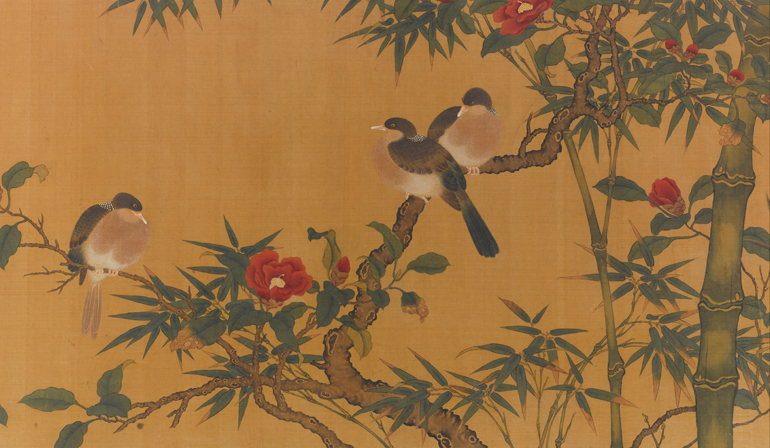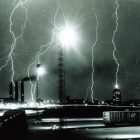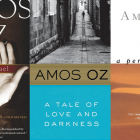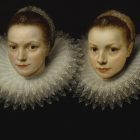Poetry, Science, Politics, and Birds

Recently, I stopped for a moment at a very small sentence, which had only tangential relevance to the social importance of the book in my hands. The book was Colson Whitehead’s The Underground Railroad and the sentence was, “Night birds screeched.” This sentence isn’t especially remarkable, as far as sentences go, though it is rather evocative, and even poetic as it stands alone. The sentence served the story well, it added suspense, it functioned to bring to life the ominous scene. Because part of The Underground Railroad’s success is that it brings the reader into the setting of the rural South, I was as stirred by the night-screeching as if I were there in the world of the story. Also, and maybe more so, I stopped because I wanted to know the particular kind of birds who were screeching. Probably an owl, I thought, or maybe a night heron, and then I was back to the book.
Springtime in Maine brings with it millions of migrating birds. This time of year I turn off the morning news and eat my breakfast listening for who might be singing outside, binoculars ready beside my mug and bowl. I can be found driving slowly, with the windows down, ready to stop at the sound of an unfamiliar song. I leave home early, I arrive to work late. I even dream of birds, whose colors and features change as I observe them: soft brown-gray jays with an almost imperceptible dusky rose hue, little unknown birds obscured by impenetrable thickets, and a bird that must have been a ptarmigan except for the single black feather sticking off its head as it does on a quail’s. All of this is to say that I am enchanted, and I am distracted by this enchantment. In a piece on birdwatching in the Guardian, the author, Tim Dee said, “Once you fall in with birds, once you have made the connection, you cannot unlearn it. Birds stitch me into the world as much as human conversation does.”
It is true that once you start to hear birds, notice them, learn their habits, the world around you opens up in a way that cannot be reversed. I find it similar to the way learning to love reading, not just knowing how to read, can provide a person with more than a lifetime’s supply of other voices and experiences. The language and habits of birding illuminate the world, making the perception of our daily surroundings vast.
Literature and birds have always been in with each other, to the point of obviousness and cliché. You’d be hard-pressed to find a poet who hasn’t mentioned a bird. The poet Simon Armitage has said that birds are “simultaneously of this world and otherworldly. And that is what poems are as well.” Birds provide endlessly useful metaphors for writers: they are somehow universally beloved, mythologized, studied, and imagined by humanity.
In fact, we are evolutionarily hardwired to appreciate birdsong, whether or not we choose to devote personal time to the close observation of our avian friends. Birds are attracted to landscapes that contain a wealth of biodiversity. Our ancestors knew that an environment rich in bird life was a sign of abundant resources. So there is a reason we feel good in a place full of song, despite our mostly lost connection to it. Here, the symbolic meets the scientific.
In Adrienne Rich’s book, What Is Found There: Notebooks on Poetry and Politics, she writes about seeing a Great Blue Heron for the first time, about the impulse to know it, to reach it by naming it. There is a certain urgency humans have to know the world, to give it language. Rich writes, “This impulse to enter, with other humans, through language, into the order and disorder of the world, is poetic at its root as surely as it is political at its root. Poetry and politics both have to do with description and with power. And so, of course, does science. We might hope to find the three activities—poetry, science, politics— triangulated, with extraordinary electrical exchanges moving from each to each and through our lives.”
There is the innate joy of watching birds, the silly happiness of it. Also, I’ve found, there is no way to spend time with birds at great lengths without acknowledging their delicate interconnectedness to habitats across the globe. There are very specific reasons why the land surrounding my home is chosen by so many species of birds as an ideal place to raise their young. In watching birds, I understand Adrienne Rich’s idea of triangulation through poetry, science, and politics. Someone thousands of miles across the globe must also value, give voice to, and protect the homes of my most familiar backyard birds.
“Poetry, science, and politics” and “extraordinary electrical exchanges moving from each to each and through our lives.” Birding, like so many other joys, comes with responsibility, just like enjoying the food we eat, the beer we drink, the cars we drive. I can spend hours alone in a twenty-foot area of woods with binoculars held to my eyes, and not think about myself, let alone time. I can just as easily disappear into the pages of a book. In both instances I become simply an organism in a landscape, completely connected. Like C.S. Lewis said, “In reading great literature I become a thousand men and yet remain myself. . . . Here, as in worship, in love, in moral action, and in knowing, I transcend myself; and am never more myself than when I do.” A world with more lovers of books is worth striving for. But a world with more birders? What would this do? A birding world, too, would provide better context for who we are, would help us relate to each other and connect more easily to the natural world, with the added benefit that it would spread a little joy.



